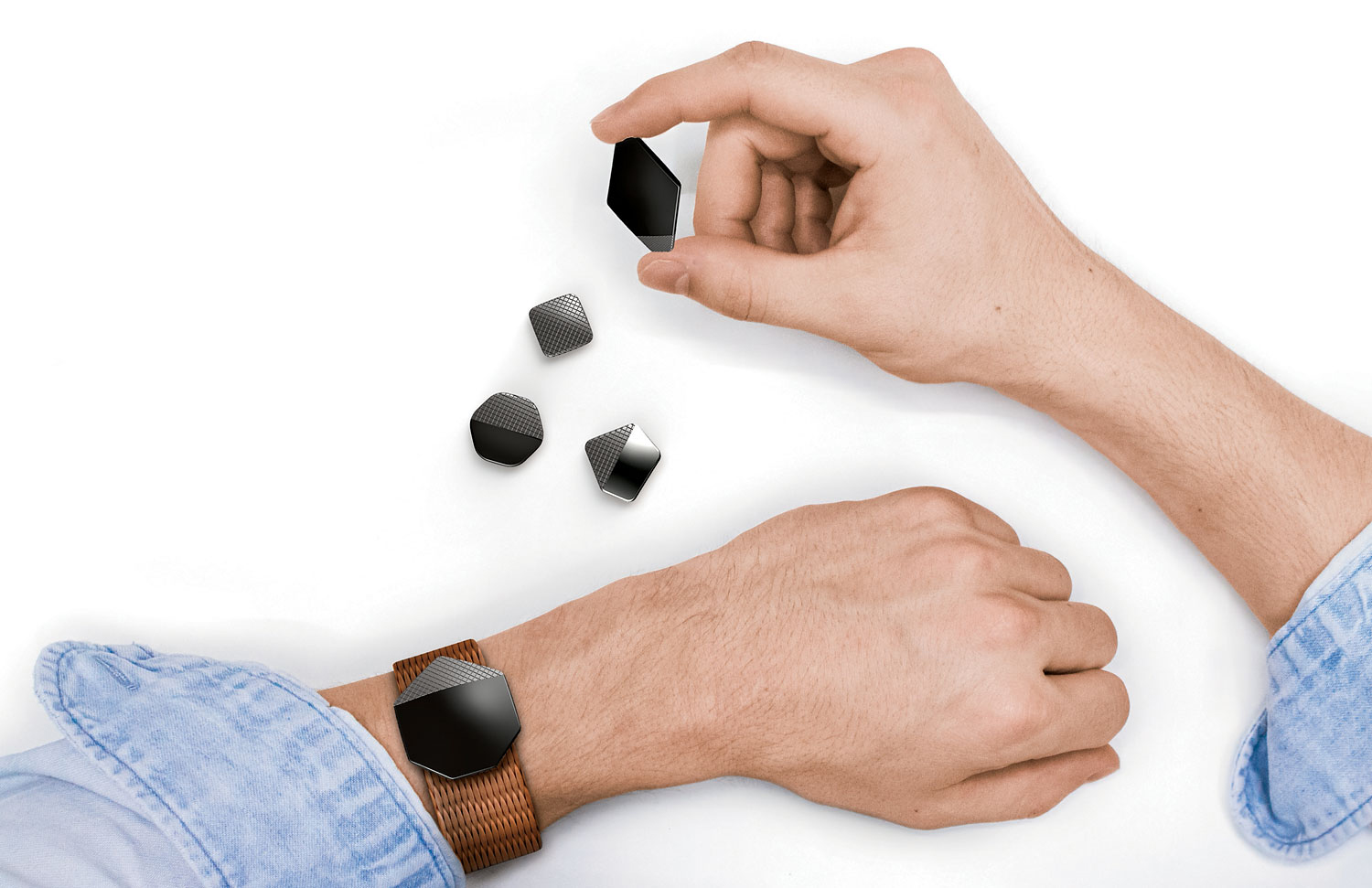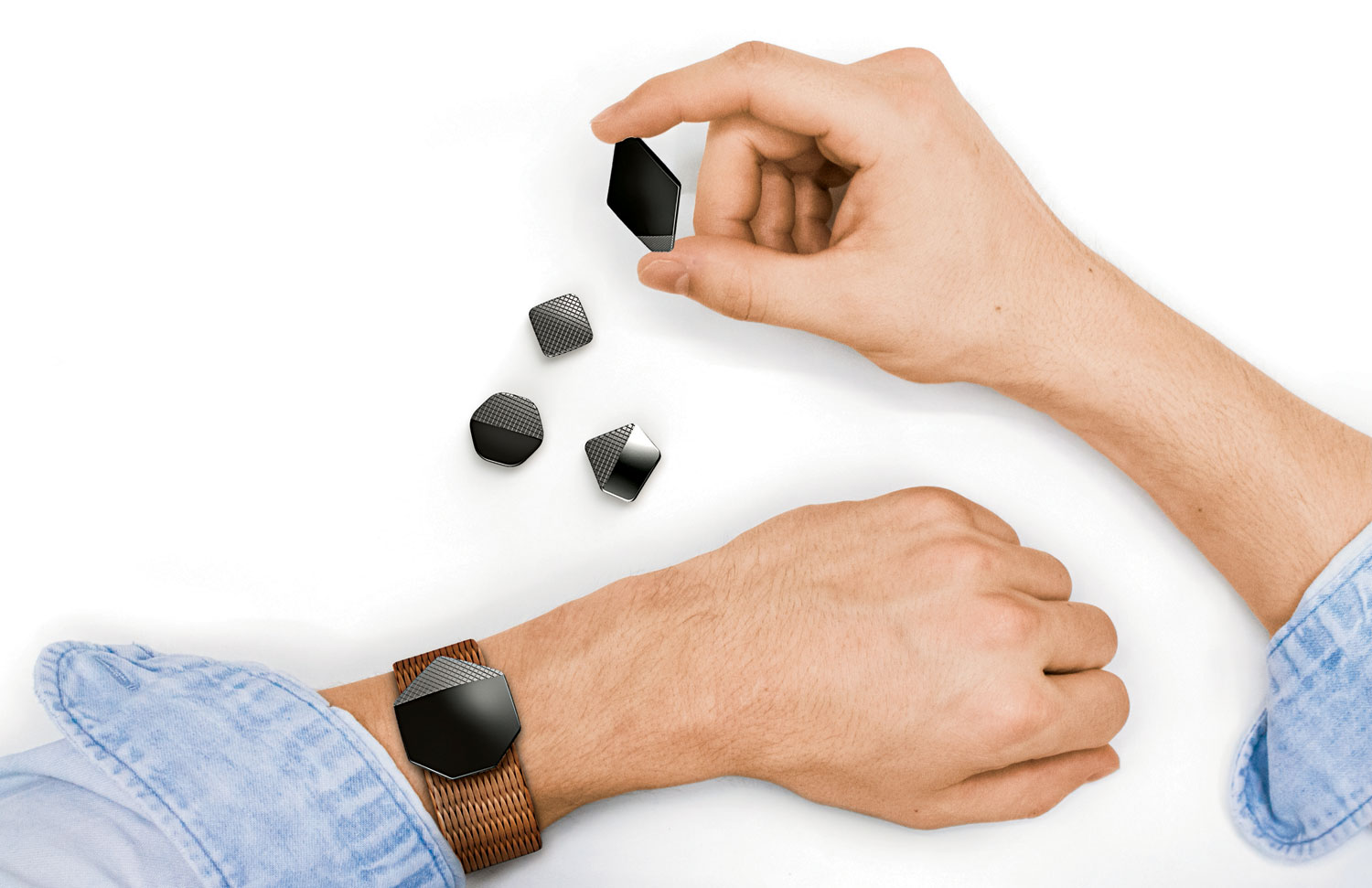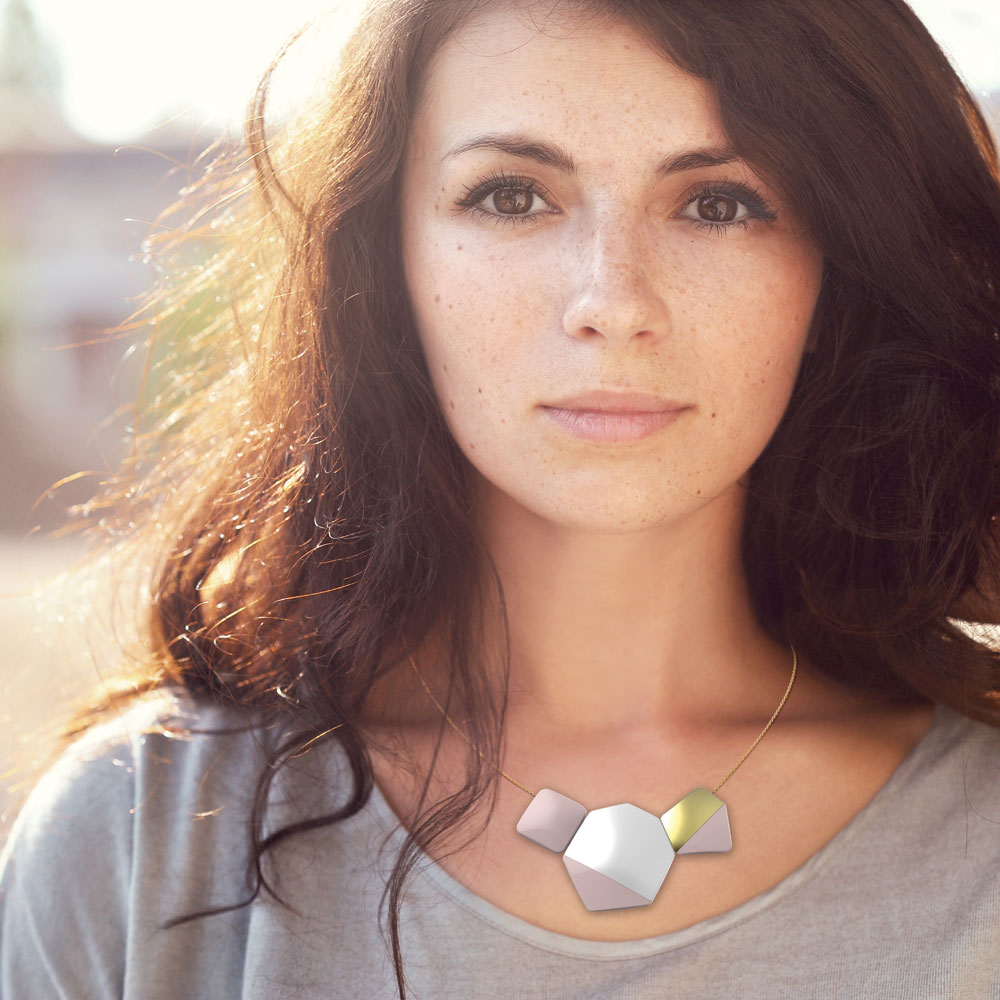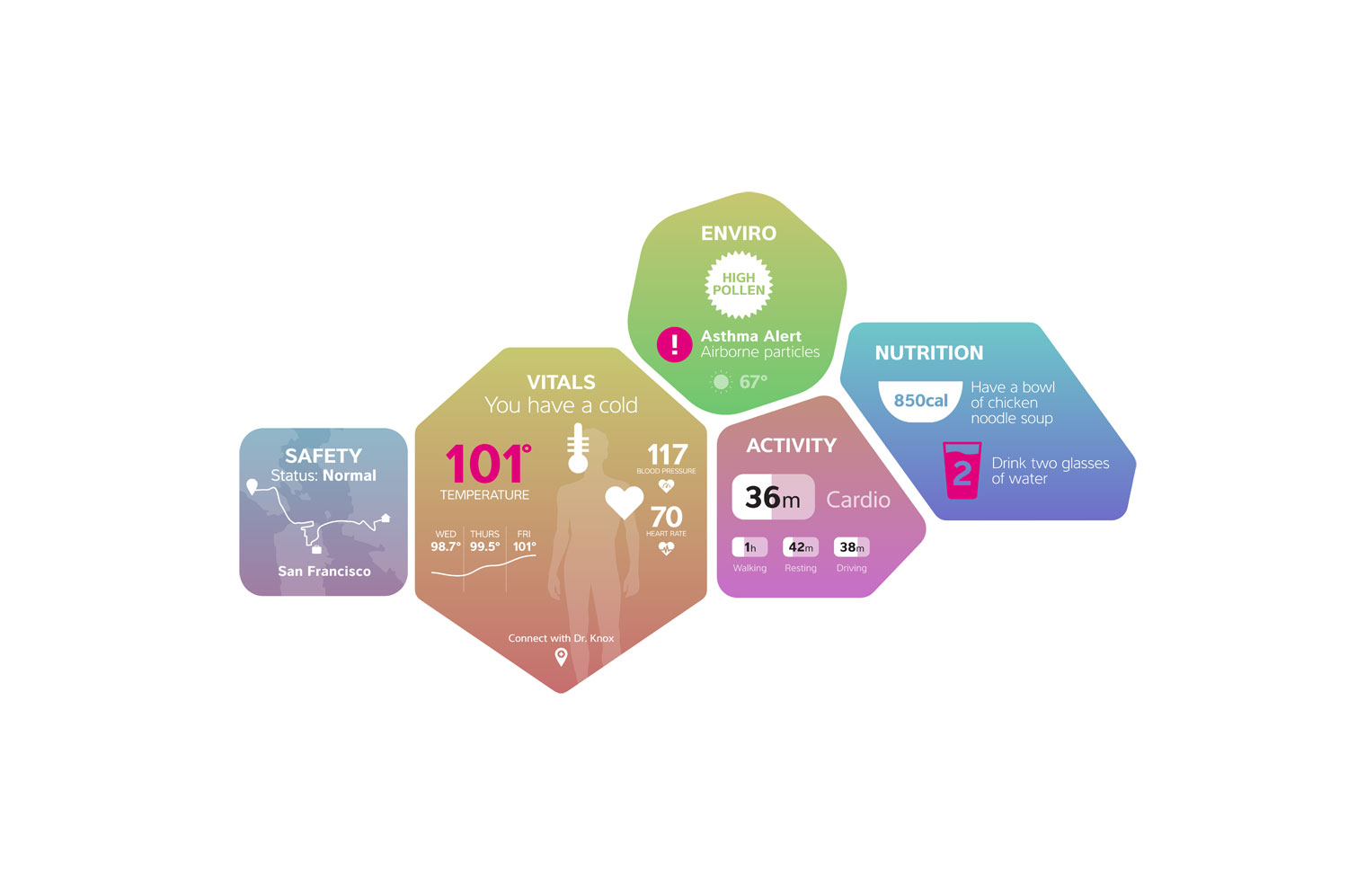
Chronic disease affects 2 out of 3 adults in the U.S., and it is estimated that 8% of the American population suffers from diabetes. Sixty-nine percent of Americans say they would like direct access to their health records. People want to keep track of their health–and we’d be better off as a society if people had an easy way to do so.
As luck would have it, mobile technology is bringing us closer to the day when we’ll be able to essentially wear our doctors. So when TIME asked me to propose an idea for how design can improve the world, my thoughts quickly turned to medicine. I call my concept–and for now, it is only that–LifeTiles: a wearable kit of sensors for monitoring individual health.
The sensors–designed to be aesthetically pleasing–would noninvasively monitor the user’s physical activity, environment and bloodstream. The information would be sent automatically to the cloud, where specialized algorithms could be used to monitor it and notify the individual with personalized feedback.
A user could also volunteer to donate his or her data, which would be made anonymous and shared with medical experts. Researchers could use the data to look for patterns, understand how disease works and find ways to prevent and cure it. Our doctors would always be with us–and everyone would benefit.
Béhar is the founder of Fuseproject and leads design and brand at Jawbone



More Must-Reads From TIME
- The 100 Most Influential People of 2024
- The Revolution of Yulia Navalnaya
- 6 Compliments That Land Every Time
- What's the Deal With the Bitcoin Halving?
- If You're Dating Right Now , You're Brave: Column
- The AI That Could Heal a Divided Internet
- Fallout Is a Brilliant Model for the Future of Video Game Adaptations
- Want Weekly Recs on What to Watch, Read, and More? Sign Up for Worth Your Time
Contact us at letters@time.com